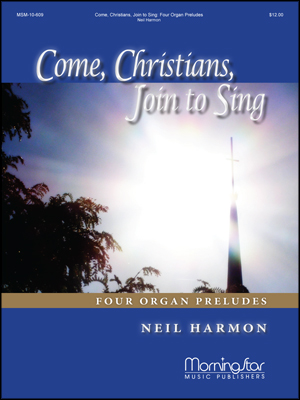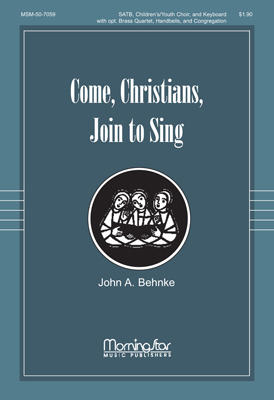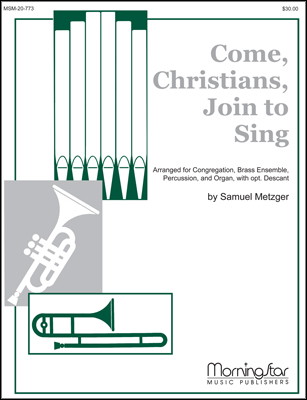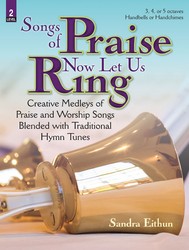- |
User Links
How Much I Owe

When this passing world is done
Author: Robert Murray McCheyne (1837)Published in 156 hymnals
Printable scores: PDF, MusicXMLAudio files: MIDI
Representative Text
1 When this passing world is done,
when has sunk yon glaring sun,
when we stand with Christ on high
looking o'er life's history,
then, Lord, shall I fully know,
not till then, how much I owe.
2 When I hear the wicked call
on the rocks and hills to fall,
when I see them start and shrink
on the fiery deluge brink,
then, Lord, shall I fully know,
not till then, how much I owe.
3 When I stand before the throne,
dressed in beauty not my own,
when I see thee as thou art,
love thee with unsinning heart,
then, Lord, shall I fully know,
not till then, how much I owe.
4 When the praise of heav'n I hear,
loud as thunders to the ear,
loud as many waters' noise,
sweet as harp's melodious voice,
then, Lord, shall I fully know,
not till then, how much I owe.
5 Chosen not for good in me,
wakened up from wrath to flee,
hidden in the Savior's side,
by the Spirit sanctified,
teach me, Lord, on earth to show,
by my love, how much I owe.
Source: Trinity Psalter Hymnal #470
Author: Robert Murray McCheyne
 McCheyne, Robert Murray, son of Adam McCheyne, W. S., was b. at Edinburgh, May 21, 1813, and educated at Edinburgh University. In 1835 he became Assistant at Larbert,near Stirling, and was ordained in 1836 Minister of St. Peter's Established Church, Dundee. In 1839 he went to Palestine as one of the Mission of Enquiry to the Jews from the Church of Scotland. He d. at Dundee, March 25, 1843. His hymns, a few of which were written in Palestine, appeared in his Songs of Zion to cheer and guide Pilgrims on their way to the New Jerusalem, By the late Rev. B. M. McCheyne....Dundee, W. Middleton, 1843.
These hymns were reprinted in his Memoir and Remains, edited by Dr. Andrew A. Bonar, 1844. The Songs as reprinted in 1844 number 14, and date from… Go to person page >
McCheyne, Robert Murray, son of Adam McCheyne, W. S., was b. at Edinburgh, May 21, 1813, and educated at Edinburgh University. In 1835 he became Assistant at Larbert,near Stirling, and was ordained in 1836 Minister of St. Peter's Established Church, Dundee. In 1839 he went to Palestine as one of the Mission of Enquiry to the Jews from the Church of Scotland. He d. at Dundee, March 25, 1843. His hymns, a few of which were written in Palestine, appeared in his Songs of Zion to cheer and guide Pilgrims on their way to the New Jerusalem, By the late Rev. B. M. McCheyne....Dundee, W. Middleton, 1843.
These hymns were reprinted in his Memoir and Remains, edited by Dr. Andrew A. Bonar, 1844. The Songs as reprinted in 1844 number 14, and date from… Go to person page >Text Information
| First Line: | When this passing world is done |
| Title: | How Much I Owe |
| Author: | Robert Murray McCheyne (1837) |
| Meter: | 7.7.7.7.7.7 |
| Language: | English |
| Copyright: | Public Domain |
Notes
When this passing world is done. B. M. McCheyne. [Debtor to Christ.] Printed in the Scottish Christian Herald, May 20, 1837; and repeated, in his Songs of Zion appended to his Memoir and Remains, 1844, in 9 stanzas of 6 lines, and headed "I am Debtor." As a whole it is not in common use but the following centos therefrom are in common use:—
1. When this passing world is done. Various centos of unequal length, with this as the opening stanza are in common use in Great Britain and America.
2. When I stand before the throne. This cento, in Kennedy, 1863, and others begins with stanza iii.
3. Chosen, not for good in me. This cento is in extensive use. It begins with stanza vi.
4. Oft I walk beneath the cloud. In use in Great Britain and America. It opens with stanza vi.
When these centos are taken into account it is found that this is the best known and most widely used of the author's hymns. Original text in Lyra Britannica 1867.
--John Julian, Dictionary of Hymnology (1907)
Access an additional article on the Canterbury Dictionary of Hymnology:
Timeline
Arrangements
Media
- MIDI file from The Cyber Hymnal #7690
- MIDI file from Evangelistic Songs #34
- MIDI file from Gloria Deo: a Collection of Hymns and Tunes for Public Worship in all Departments of the Church #478
- MIDI file from Hymns of Consecration and Faith #591
- MIDI file from Revival Hymns: a Collection of New and Standard Hymns for Gospel and social meetings, Sunday schools and Young People's Societies #159


 My Starred Hymns
My Starred Hymns





